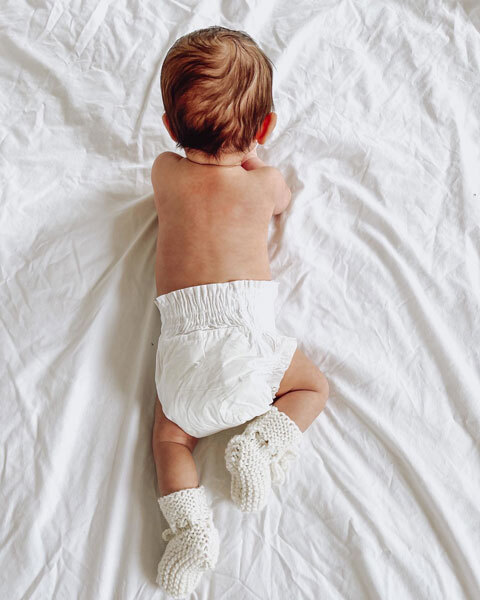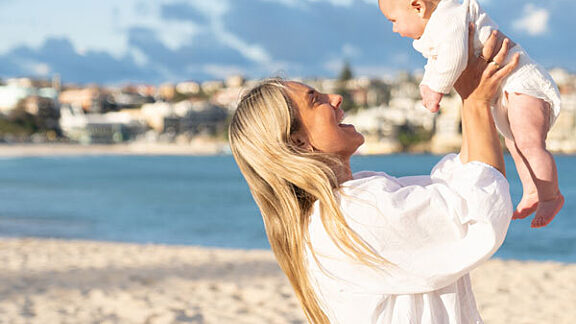Let's reduce the impact of both cloth and disposable nappies.
Cloth nappies are an alternative option to disposable nappies although they do still have an environmental impact. However there are ways to reduce this. Some examples are to not flush the nappy liners, wash nappies in a cold full load (preferably in a front loading washing machine) using Australian made biodegradable and phosphate-free detergents and dry them on a line outside. It's best to avoid using fabric softener and use the nappies for more than one child.
However, Choice Magazine surveyed new parents and found 95% still do opt for disposable nappies. Choosing eco-friendly alternatives to commercial nappies can help alleviate some environmental impact. Look for products that are chlorine-free, not bleached, and contain no perfume, no phthalates, organotins (MBT, DBT, TBT), heavy metals, HCHO (formaldehyde), colophonium, AZO-pigments, PVC, and substances known as harmful to health or the environment.
To reduce the environmental impact of disposable nappies, choose 'biodegradable' nappies, with compostable packaging. Flush solid waste rather than putting it in the bin. Choose compostable wipes and where councils have the facilities, dispose of these in your green waste bin.
We have found that Australian brand Ecoriginals is the world’s first nappy company to have compostable paper packaging and THE ONLY company to have over 90% plant-based materials which means they are a 90% biodegradable nappy. They also produce 100% compostable bamboo wipes that can be composted at home. Ecoriginals continues to set itself apart with impressive environmental givebacks. For every order Ecoriginals have established partnerships where one tree is planted, 25 items of plastic waste are removed from the ocean and all carbon is offset on the back of every order.




